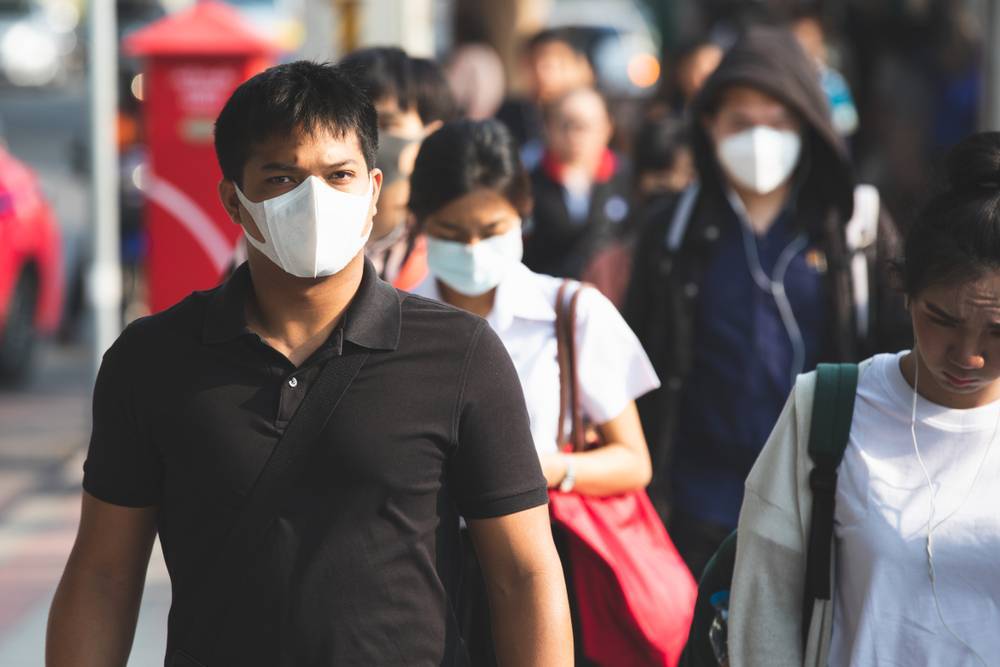Medical Channel Asia presents the weekly Asian medical news bulletin, bringing you essential healthcare news from across the region.
This week’s news bulletin will cover cancer treatment in the Philippines, breast cancer screening in Thailand and more.
Thailand
The National Health Security Office (NHSO) in Thailand has announced that all Thai citizens with healthcare insurance can access breast cancer screening, provided they meet certain conditions. Deputy NHSO secretary-general Dr. Attaporn Limpanyalert emphasised the importance of preventive healthcare. Therefore, this initiative was incorporated into the 30-baht healthcare universal package, commonly known as the “gold card” scheme. Eligibility for screening requires individuals to be over 18 years old and have a personal or family history of cancer. Dr. Attaporn highlighted that early detection can reduce mortality rates among breast cancer patients. The NHSO will provide funding for the screening. The patient’s respective healthcare insurance system will cover the subsequent treatment if cancer is identified. Only 420 individuals have availed of the screening, primarily due to a need for more awareness. The NHSO aims to expand the program’s reach by including more healthcare schemes.
Philippines
The Philippine government has allocated P2 billion in the 2024 National Expenditure Program for cancer treatment and support. Of this, P1.024 billion will fund 61 cancer drugs, benefitting nearly 18,695 patients. Meanwhile, P1 billion is dedicated to ongoing medical aid for 6,666 patients at 31 cancer access sites. This Cancer Assistance Fund (CAF) will cover various cancer control services to address financial challenges in cancer diagnostics not supported by the national insurer PhilHealth. Additionally, P682.7 million will assist over 124,000 mental health patients, providing medications at 362 access sites. Despite these allocations, the Department of Health’s 2024 budget faces a P10-billion reduction from 2023.
Malaysia
The Health Ministry plans to establish the National Institute of Pre-Hospital Treatment and Disaster Medicine to optimise services during emergencies and disasters. Health Minister Dr Zaliha Mustafa mentioned that they aim to streamline the hotspot collaboration initiated in 2014 with St. John Ambulance Malaysia and the Malaysian Red Crescent. The ministry will also continue to share expertise in fire safety and disaster management with the Emergency Medical Rescue Services of the Malaysian Fire and Rescue Department. Furthermore, Dr Zaliha highlighted a recent MoU signed between the ministry and the Fire and Rescue Department, strengthening the country’s pre-hospital and ambulance treatment services, exemplified by initiatives like the Emergency Air Ambulance Rescue Service.
Vietnam
Following the Ministry of Health (MoH)’s Circular 13/2023, several technical services, notably on-demand surgeries, have witnessed significant price reductions in Vietnam, effective August 15. At Hanoi’s Viet Duc Hospital, the cost of on-demand medical examinations has decreased substantially. It has dropped from 2 million VND (84 USD) to 500,000 VND (21 USD). Other technical services, such as thyroid and ovarian ultrasounds and disc herniation treatments, have also seen considerable price reductions. Despite these price cuts, the hospitals assure no compromise on service quality. Meanwhile, medical service prices in HCM City’s hospitals remained consistent post-August 15. Many hospitals are either reviewing the pricing or focusing on enhancing patient amenities without raising costs in light of the challenges posed by the two-year-long COVID-19 pandemic.
Singapore
Due to the presidential election, Singapore’s three public health clusters are proactively rescheduling numerous patient appointments set initially for Sept 1, which has been declared a public holiday. Polyclinics and hospital specialist outpatient clinics (SOCs) will shut down and surgical operations postponed. Therefore, efforts are underway to minimise disruptions by considering factors such as clinical urgency. The National Healthcare Group, for instance, is initiating teleconsultation sessions where possible. The National University Health System plans on extended clinic hours or additional Saturday sessions to accommodate rescheduled patients. Typically, government-run polyclinics and SOCs see roughly 39,500 patients daily. Conversely, the private sector, like IHH-managed hospitals, expects minimal disruptions on election day.
Indonesia
The Indonesian government has ceased special financial support for COVID-19 patients’ treatments. This is in line with the Health Minister Regulation No. 23 of 2023. From September 1, 2023, Covid-19 patients must finance their treatments. The Head of the Legal Bureau of the Health Ministry, Indah Febrianti, mentioned that treatment reimbursement will now come through the national health insurance system or be self-financed. This adheres to Presidential Decision No. 17 and Presidential Regulation No. 48 of 2023, signifying the end of the COVID-19 pandemic status in Indonesia. Hospitals can still claim reimbursement for patients treated before June 21. Meanwhile, those admitted post this date can claim until August 31, 2023. Following the conclusion of the pandemic status on June 21, the Health Ministry now oversees COVID-19 management, emphasising health promotion, surveillance, clinical management, vaccination, and waste management.

